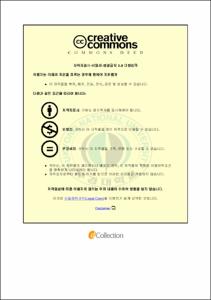유아 영재 어머니의 양육경험에 대한 내러티브 탐구
- Alternative Title
- A Narrative Inquiry of the Mother's Experience in Raising Gifted Young Children
- Abstract
- This study attempted to understand the experiences of raising gifted young children in detail and find the direction of gifted young child education in Korea, through narrative inquiry method. The research questions are as follows:
1. What do the talented characteristics of children mean for their mothers?
2. What is the role of mothers for discovering the talented characteristics of their children?
3. What are the difficulties in raising gifted young children?
The narrative inquiry method of Connelly and Clandinin(1995) is applied to this study to understand what mothers see the talented characteristics of their children, what difficulties they go through in raising, and their needs, through their truly voices.
The targets, studied in this study, are 7 mothers who have 5-year-old gifted young children in H institution in Busan. H institution educates gifted young children, selected from Wechsler Scales within the range of top 5%. We interviewed in-person for 8 weeks from Jun. 2010 to Jul. 2010, according as their schedules. 7 participants of study took part in in-person-interview 3 times, and the duration of interview was 60~90 minutes per each laps. When interview was started, we had a conversation of the experiences about raising gifted young children, wrote down the contents and recorded with their consent. The data of the contents of interview forms about 150 A4 sheets.
The results of this study are as follows.
1. Mothers of gifted young children think the important talented characteristics which their children have are the ability to solve problems creatively and patience. Also, they said that leadership is necessary and important for their children to achieve self-realization and demonstrate more powers within groups, so that they can live together.
2. Mothers of gifted young children try to have self-regulating and receptive raising-attitude and offer various experiences in physically and socially. And they do their best to control themselves not to come expectations before achievement of their children, even though the high ability to achieve tends to enhance expectations of mothers.
3. Mothers of gifted young children have difficulties, because of the characteristics of their children and family, and social eyes. There are comments for the necessity of systematic and continuous gifted young children education programs, because of the confusion from the absence of systematic program and national supports, burden of private education fee, conflict existing education program for made-gifted children, and the anxiety to future.
- Issued Date
- 2011
- Awarded Date
- 2011. 2
- Type
- Dissertation
- Publisher
- 부경대학교
- Alternative Author(s)
- Kim, Bit nae
- Affiliation
- 부경대학교 일반대학원
- Department
- 대학원 유아교육학과
- Advisor
- 황희숙
- Table Of Contents
- Ⅰ. 서론 1
1. 연구 목적 및 필요성 1
2. 연구문제 4
Ⅱ. 이론적 배경 5
1. 영재의 정의와 특성 5
가. 영재의 정의 5
나. 영재의 특성 9
다. 유아 영재의 특성 12
2. 부모의 양육태도 14
가. 양육태도 정의 14
나. 양육태도 유형 15
3. 영재 부모의 양육태도 및 특성 20
Ⅲ. 연구 방법 24
1. 내러티브 탐구 24
가. 내러티브의 개념 24
나. 내러티브 탐구 절차 26
2. 연구 참여자 31
가. 연구 참여자 선정 31
나. 연구 참여자 배경 32
3. 자료수집 35
4. 자료분석 36
Ⅳ. 유아 영재 어머니들의 이야기 37
1. 영재성의 의미 37
가. 창의적인 문제해결력 37
나. 끈기 있는 아이 39
다. 여럿 속에서 빛나는 아이 40
2. 유아 영재 양육에서의 어머니의 역할 41
가. 자율적이고 수용적인 양육태도 42
나. 다양한 경험의 제공 42
다. 지나친 기대감 내려놓기 44
3. 유아 영재 양육의 어려움 45
가. 영재아의 특성으로 인한 혼란 46
나. 형제·자매 간의 보이지 않는 갈등 48
다. 주위의 부담스러운 시선 50
4. 유아 영재 교육에 대한 인식과 요구 51
가. 난립하는 사설 영재교육기관에 대한 불신 52
나. 사교육비 부담 53
다. 만들어진 영재를 위한 형행·영재교육 비판 55
라. 미래에 대한 두려움 56
마. 체계적이고 지속적인 영재교육에 대한 요구 58
Ⅵ. 결론 및 제언 59
63
- Degree
- Master
- Files in This Item:
-
-
Download
 유아 영재 어머니의 양육경험에 대한 내러티브 탐구.pdf
기타 데이터 / 818.44 kB / Adobe PDF
유아 영재 어머니의 양육경험에 대한 내러티브 탐구.pdf
기타 데이터 / 818.44 kB / Adobe PDF
-
Items in Repository are protected by copyright, with all rights reserved, unless otherwise indicated.